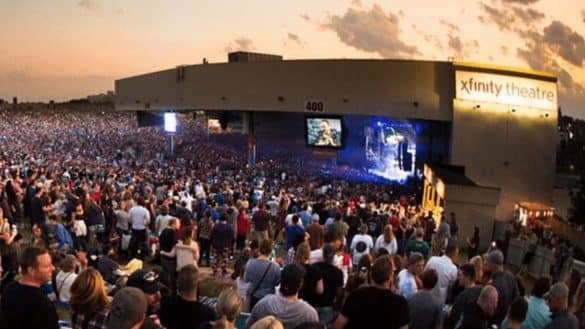Ticketmaster, the world’s largest live event ticketing company, began in 1976. Albert Leffler, Peter Gadwa, Gordon Gunn, Charles H Hamby Jr., and Jerry Nelson founded it with a focus on computerized ticketing solutions. Evolving into a global powerhouse, the company merged with Live Nation, creating the largest live event promoter and ticketing operation.
Initially, the company focused on pioneering computerized systems, replacing paper tickets with barcode technology. This innovation boosted efficiency, setting a new industry standard. Throughout its history, it expanded services and partnerships, granting fans unprecedented access to live events.
Its dominance stems from its extensive network of partnerships with venues, artists, promoters, and sports teams, granting it access to a wide range of events globally.
However, Ticketmaster’s dominance sparked controversies. Critics argue that Ticketmaster’s market dominance can limit consumer choice and lead to higher prices for tickets. Accusations of inflating ticket prices and harming consumers persist.
In one famous example, the band Pearl Jam engaged in a highly publicized feud with Ticketmaster in the 1990s. The band was one of many who objected to the company’s huge share of the market, which it said led to inflated prices for fans. It attempted to bypass the company, only to cancel their 1994 tour when they said it was impossible to offer tickets at fair prices or tour without performing in venues with exclusive contracts with the ticketing company.
The company, along with Live Nation, faced antitrust accusations and a Department of Justice consent decree post-merger. That consent decree was extended after a settlement with the DOJ in 2019.
Despite challenges and competition from other ticketing platforms and secondary marketplaces, Ticketmaster continues to maintain a significant presence in the industry, offering a wide array of events and services to millions of fans worldwide.
Oak View Group/Ticketmaster Ties Endanger CT Venue Deal
Sabrina Carpenter Fans Priced-Out of Tickets, Face Woes During Ticketmaster Sale
Live Nation Asks Judge to Dismiss Huge Portions of Antitrust Suit
American Airlines Frequent Fliers Can Purchase Sports, Concert Tickets With Miles
Ticketing, Security Failures Mar Copa America Final in Miami
Ticketmaster, AXS “Non-Transferable” Tickets Cracked by Hackers
Bears Fans Complain of Inability to Score Practice Tickets via Ticketmaster
Ticketmaster Reveals Integration With Shazam, Launches Discovery Campaign
Hackers Leak 30K Ticketmaster Barcodes, Share Tutorial for Counterfeit Tickets
Ticketmaster Contradicts Reports of Hacker Leak, Access to 440K Taylor Swift Tickets
Get TicketNews to Your Email Inbox!
By submitting this form, you are consenting to receive marketing emails from: TicketNews. You can revoke your consent to receive emails at any time by using the SafeUnsubscribe® link, found at the bottom of every email. Emails are serviced by Constant Contact








